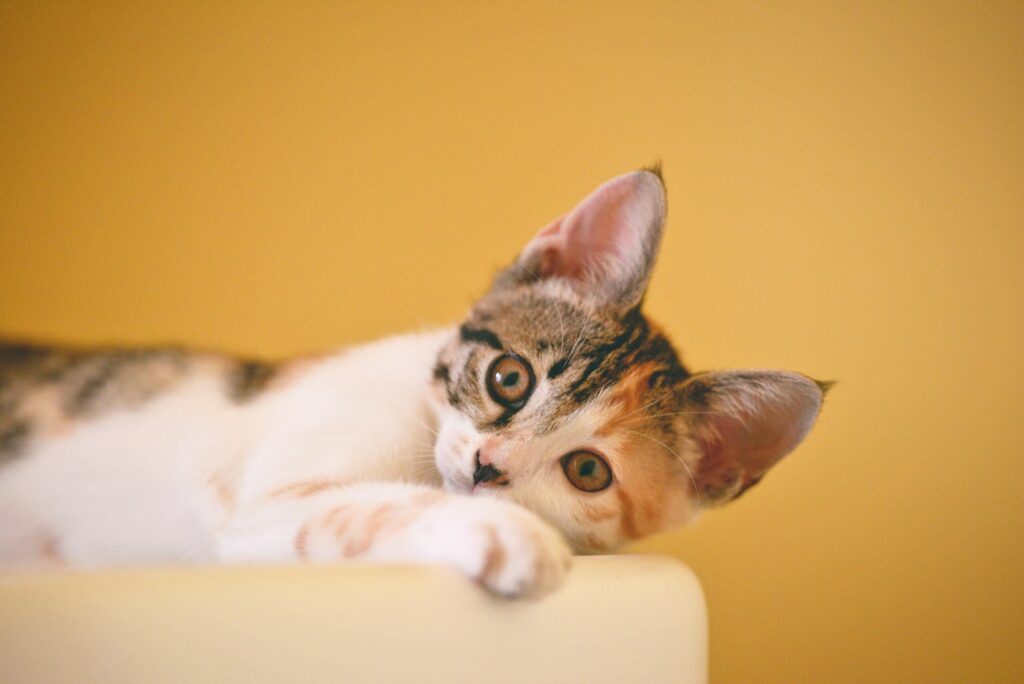Can Cats Eat Peas? — Yes, They can
Peas, those tiny green jewels packed with nutrients, have become a popular addition to our plate. But can they also be a healthy treat for our feline friends? The answer is a resounding yes!
Can Kittens Eat Peas?
Yes, kittens can also enjoy a taste of these vibrant green legumes. However, it’s important to introduce peas gradually into their diet and monitor their response to ensure they tolerate them well.
Things to consider when feeding peas to kittens?
Kittens have delicate digestive systems, so it’s crucial to introduce new foods slowly. Start by offering a small amount of cooked peas mashed and mixed with their regular kitten food. Monitor their reaction and watch for any signs of digestive upset or allergies.
Nutritional Benefits of Peas for Cats — Why Peas are Good for Cats? /Why Cats can have Peas
1. Rich in Essential Vitamins and Minerals
Peas are a powerhouse of essential vitamins and minerals, including vitamin K, vitamin C, vitamin A, and potassium. These nutrients play a vital role in maintaining a cat’s overall health, supporting their immune system, and promoting good vision.
2. High Fiber Content
The fiber content found in peas can aid in maintaining healthy digestion for your feline companion. It helps prevent constipation and promotes regular bowel movements, ensuring their digestive system remains in optimal condition.
3. Source of Plant-based Protein
While cats are obligate carnivores, they can still benefit from small amounts of plant-based protein. Peas provide a nutritious protein source that contributes to your cat’s overall protein intake, supporting muscle growth and repair.
4. Low in Calories, Promotes Healthy Weight
For cats struggling with weight management, peas can be an excellent addition to their diet. They are low in calories and high in fiber, making them a satisfying yet weight-friendly treat or supplement to their regular meals.
5. Potential Anti-Inflammatory Properties
Peas contain phytonutrients that possess anti-inflammatory properties. This can be beneficial for cats with inflammatory conditions like arthritis, supporting their joint health and reducing discomfort.
Potential Allergies: Can Cats Be Allergic to Peas?
While allergies to peas are relatively rare in cats, it’s essential to watch for any adverse reactions. Some cats may experience digestive issues, such as vomiting or diarrhea, if they have an intolerance or allergy to peas. If you notice any concerning symptoms, consult with your veterinarian for further guidance.
Symptoms of Pea Allergies in Cats
- Vomiting: Look out for episodes of vomiting after consuming peas.
- Diarrhea: Keep an eye on changes in stool consistency or increased frequency.
- Itchy Skin: Excessive scratching, redness, or irritation may indicate an allergic reaction.
What to Do If Your Cat Shows Symptoms?
- Contact Your Veterinarian: If your cat displays any concerning symptoms, reach out to your veterinarian for proper diagnosis and guidance. They may recommend eliminating peas from their diet or conducting further allergy testing.
- Alternative Treat Options: In case of a pea allergy, there are numerous other safe and healthy treat options available for your feline companion. Your veterinarian can suggest suitable alternatives.
- Monitor and Observe: Keep a close eye on any changes in your cat’s behavior and symptoms, and report them to your veterinarian. They will guide you in providing the best care for your furry friend.
Recommended Amount: How Much Peas Can a Cat Consume?
When feeding peas to your cat, moderation is key. Peas should be considered as a treat or supplement rather than a primary component of their diet. As a general guideline, you can offer a few cooked and mashed peas as an occasional snack. However, it’s important to consider your cat’s overall diet and consult with your veterinarian for personalized recommendations.
Things to Consider When Feeding Peas to Cats
While peas can be a nutritious addition to your cat’s diet, it’s crucial to adhere to the following considerations:
- Always cook the peas thoroughly and ensure they are soft and easily digestible for your cat.
- Avoid seasoning the peas with any additives like salt, butter, or oils, as these may be harmful to cats.
- Introduce peas gradually, observing your cat’s response and monitoring for any digestive issues or allergic reactions.
- Remember that moderation is key — peas should not replace your cat’s balanced and complete cat food.
- If your cat has any existing health conditions or dietary restrictions, consult with your veterinarian before introducing peas into their diet.
How to Feed Peas to Cats: A Quick Guide
Sharing a small portion of peas with your cat can be a delightful experience for both of you. Here’s a quick guide to serving peas to your feline friend:
Steamed Peas
1. Steam a handful of fresh or frozen peas until they are soft and easy to mash.
2. Once cooled, mash the peas with a fork or blend them into a smooth puree.
3. Serve a small teaspoon of mashed peas as a treat or mix it in with your cat’s regular food for added texture and flavor.
Pea Crunchies
1. Preheat your oven to 350°F (175°C) and line a baking sheet with parchment paper.
2. Drain and rinse a can of low-sodium canned peas.
3. Spread the peas evenly on the baking sheet and bake for 25–30 minutes or until they become crispy.
4. Allow the peas to cool before offering them as a crispy treat to your cat.
Conclusion
Peas can be a safe and nutritious addition to your cat’s diet, offering an array of vitamins, minerals, and dietary benefits. However, always introduce new foods gradually, monitor your cat’s reaction, and consult with your veterinarian for personalized advice. Remember, a happy and healthy cat is a well-nourished one!






